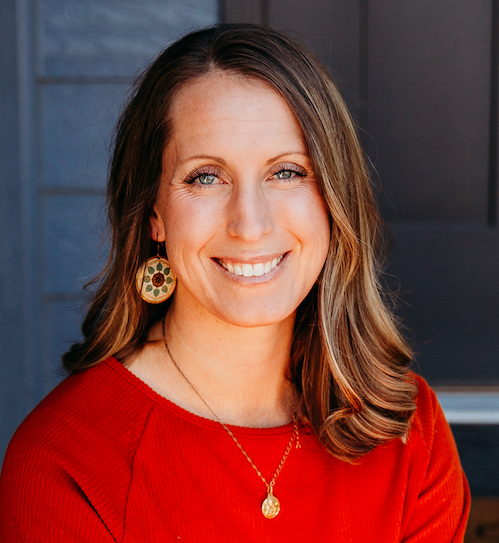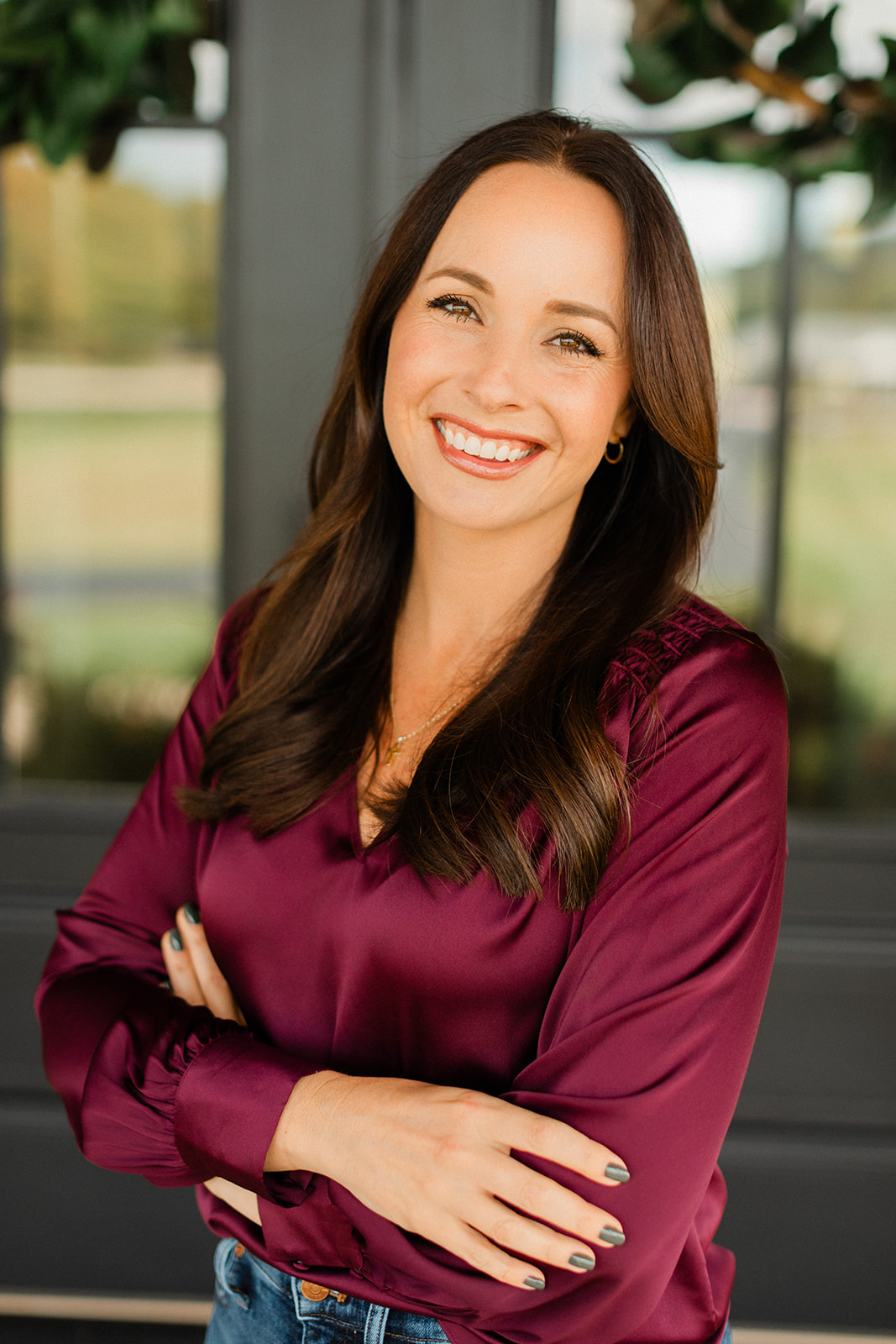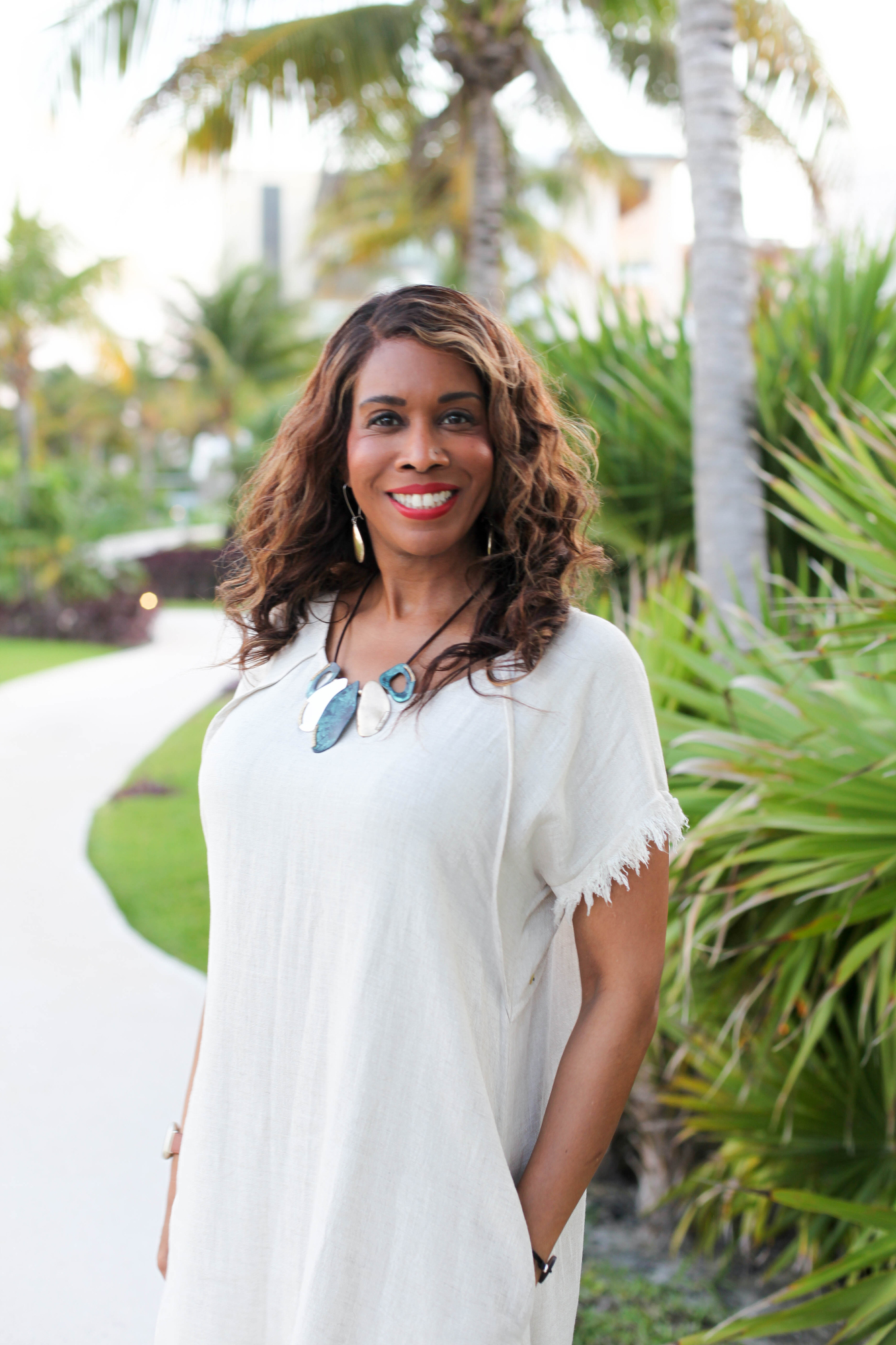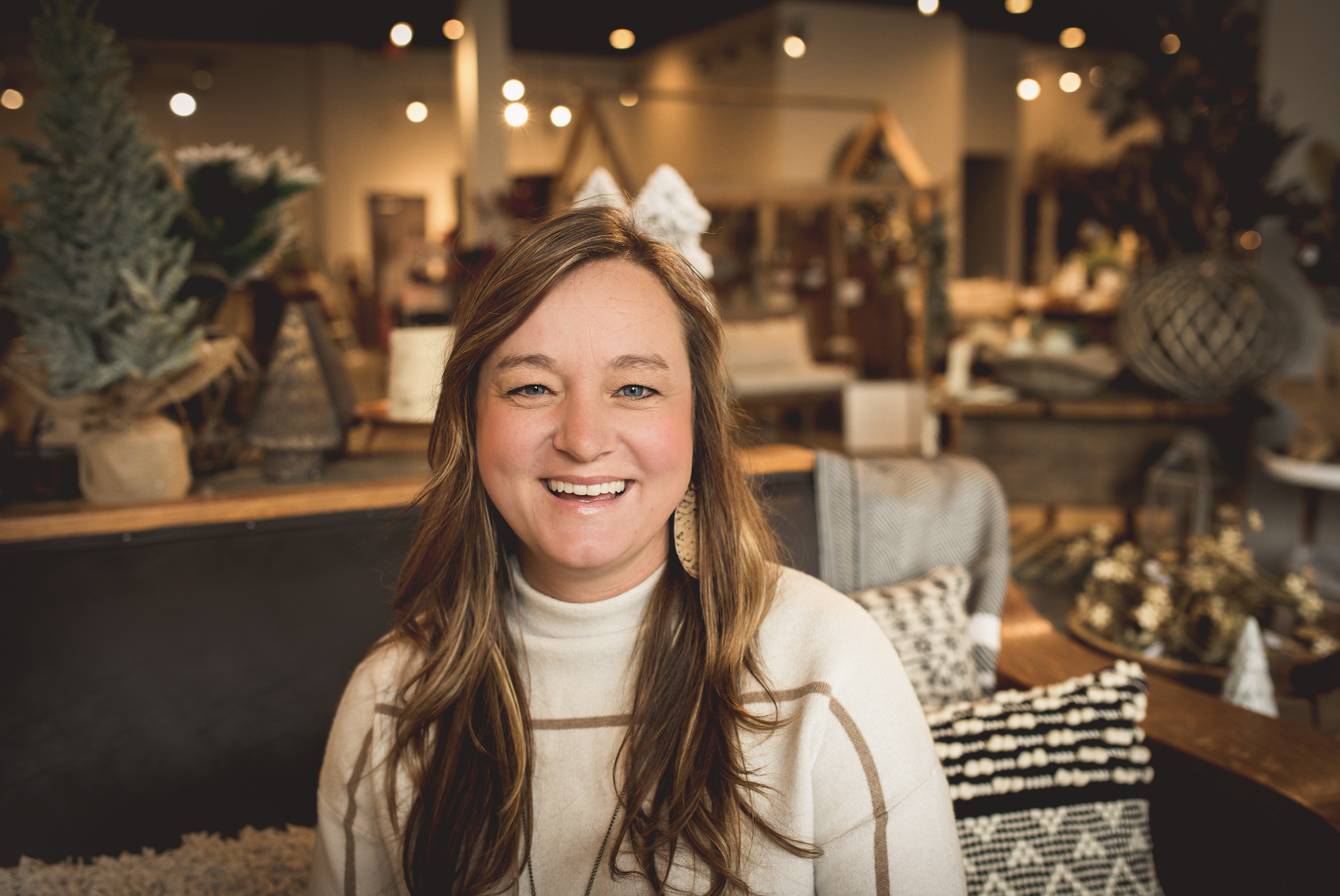The space under your bed might be the most neglected—and mysterious—storage zone in your home. In this quick, practical episode, Kathi Lipp and Tonya Kubo equip you with simple steps to declutter the hidden chaos beneath your bed. You’ll learn the best way to tackle...
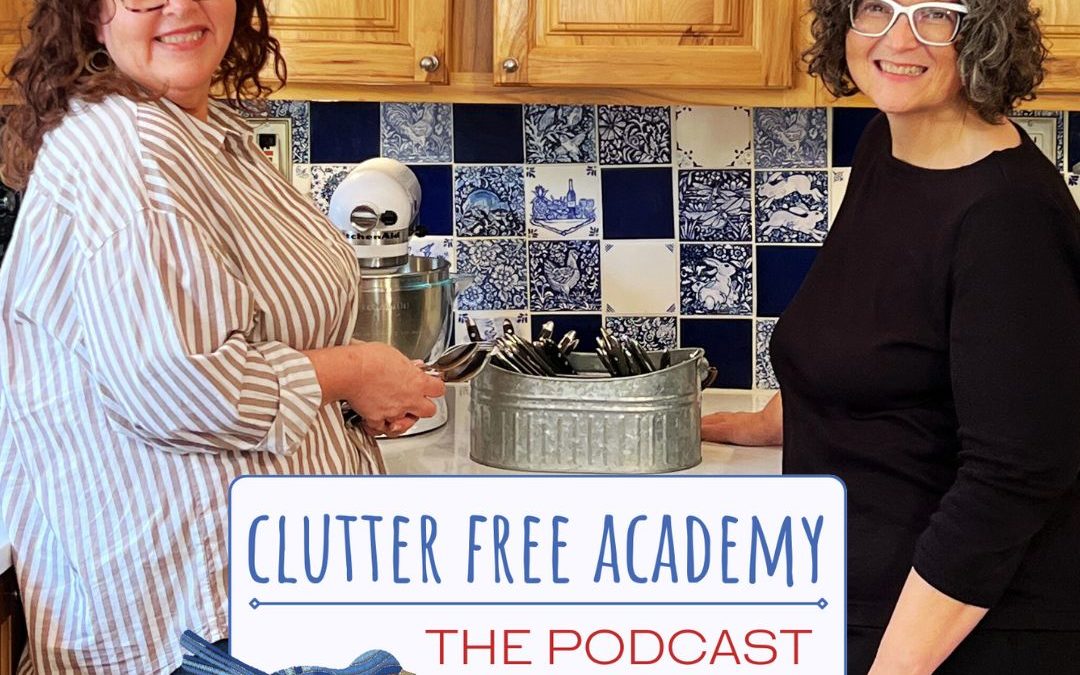
#687 – What’s Lurking Under Your Bed? Declutter the Forgotten Zone for Good
#687 – What’s Lurking Under Your Bed? Declutter the Forgotten Zone for Good
The space under your bed might be the most neglected—and mysterious—storage zone in your home. In this quick, practical episode, Kathi Lipp and Tonya Kubo equip you with simple steps to declutter the hidden chaos beneath your bed. You’ll learn the best way to tackle dust, discover what actually belongs in this space (and what definitely doesn’t), and get favorite solutions for easy, clutter-free storage—even if you’re short on closet space! Whether you struggle with allergies, have kids who love hiding treasures under the bed, or just want to make the most of every inch in your home, this episode is loaded with relatable ideas and proven tips. Listen in, laugh along, and finally say goodbye to that under-bed pit of mystery—for good!
Sabbath Soup: Weekly Menus and Rhythms to Make Space for a Day of Rest
Kathi Lipp gives readers an easy-to-follow process for meal planning and prep, so that they can enjoy a full day each week of real rest and refreshment.
Could you use a break from cooking (and everything else) once a week? Not only is rest vital for your mind and body, it’s good for your soul too. God designed us to enter into Sabbath rest one day per week, but as you know, meals still need to be made. Your family still needs to be fed.
Sabbath Soup includes convenient, seasonal meal plans that take the guesswork out of shopping and cooking. More than just a collection of delicious recipes—including main dishes, breads, breakfasts, desserts, salads, sides, and yes, soups—this is your guide to establishing a weekly rhythm and routine of meal planning and prep that allows you to have a true day off.
Do something good for your soul and experience the peace that comes with a full day dedicated to spending time with God, family, and friends. Savor your Sabbath as you proudly proclaim, “Soup’s on!”
Order your copy of Sabbath Soup: Weekly Menus and Rhythms to Make Space for a Day of Rest here.
Links Mentioned:
FYI: Some product links may be affiliate links. If you buy, I may earn a small commission at no extra cost to you. Thanks for your support!
Clutter Free Resources:
Support the podcast with Coffee for Kathi!
Join our Clutter Free Academy Facebook Group
Order Sabbath Soup here
Let’s stay connected
To share your thoughts:
- Leave a note in the comment section below.
- Leave an honest review on iTunes. Your ratings and reviews really help and I read each one.
Subscribe on iTunes or subscribe to our newsletter now.
Meet Our Co-Host
Tonya Kubo

Transcript
Kathi Lipp (00:09)
Well, hey friends, welcome to Clutter-Free Academy, where our goal is to help you take small, doable steps every day to live with less clutter and more life. And I’m here with Tonya Kubo. Hey, Tonya.
Tonya Kubo (00:20)
Hey, Kathi.
Kathi Lipp (00:22)
Today we’re talking about a place that rarely sees the light of day, the space under the bed. It’s one of those sneaky spots where clutter loves to hide, but today we are making the invisible visible and we’re making it clutter free and intentional. I’ll never forget when I was younger, my mom finally got fed up with not, you know, I’m like, I can’t find any of my clothes. I can’t find any of my clothes.
And we spent probably half an hour digging out from underneath my bed. My clutter free roots are deep and legit. Like, I mean, not my clutter free roots, my clutter roots. And so I and you would think as an adult, things would be better. And they have been better, but it’s only been through intentionality because for me, under the bed was the easiest place where of I don’t know what to do with this. How about we put it under the bed?
Tonya Kubo (00:56)
Mm-hmm.
Yeah.
Kathi Lipp (01:19)
And maybe that wasn’t best my best system now i’m gonna i’m gonna make a a bold statement here that i’m going to let you opt out of and i’ll explain that but I I think that Things that just because we don’t see it it doesn’t mean it’s not affecting our space and our peace I think it’s you know, I think it’s real
Tonya Kubo (01:31)
Mmm.
No, I agree.
Kathi Lipp (01:47)
Yeah, because if you don’t know what’s down there, then you’re always going to wonder, you’re always going to assume. And you and I were just talking about ? tripping in our own houses over clutter. And the hard part is getting back up. Can I just say, I don’t want to have to crawl under my bed more than a couple of times a year. Yeah, yeah, it does not work for me.
Tonya Kubo (02:03)
Yeah.
No, no.
Kathi Lipp (02:16)
When things get kicked under there, old shoes, off season clothes, random storage bins, forgotten items, we need to know exactly what’s down there. We need to know what’s accessible. It’s a pain to get down there, so it should only house items that truly belong. And we need to be able to clean under there. I don’t know about your house.
In my house, that can get really, really, really dusty.
Tonya Kubo (02:47)
Oh, yeah. Well, and also, you know, I’ve got kids, they shove stuff under there. It’s not pretty, Kathi. It’s not pretty.
Kathi Lipp (02:52)
It’s, yes.
So this is the thing that I’m gonna give you an out for, but I think it’s a guiding principle that many of us should think about, but to use our under the bed space solely for things that are related to the bed. So here’s what I mean by that. That most of us probably have a couple of ? sets of sheets.
Tonya Kubo (03:03)
Mm-hmm.
Kathi Lipp (03:21)
Most of us have some extra pillows, some extra blankets that we’re not using year round, those kind of things. Now, I know that you happen to use your under the bed storage also for ? out of season clothing, correct? But you know that it’s there. I think it’s really important we do not have mysteries underneath our bed.
Tonya Kubo (03:26)
Mm-hmm.
Yep.
Mm-hmm.
Oh, I agree. But I just want to jump in and say you’re giving me an idea because remember this is an old house with two closets and we keep all the bedding and the sheets and stuff in the hallway closet, but it takes up two full shelves because they’re not very big shelves. And so now I’m like, and I have so much space underneath my bed still because I don’t have a lot of non-seasonal stuff. So I’m like, ooh, I could buy a couple.
Kathi Lipp (03:55)
Mm-hmm.
Yeah.
Really?
Okay.
Tonya Kubo (04:15)
containers and I could get two whole shelves free in my hallway.
Kathi Lipp (04:20)
And I’m going to tell you
the containers you should buy. This is revolutionized. Yes. Yes. Okay. So this is a quick episode. We’re going to take a quick break. And when we come back, we’re going to talk about setting up clutter-free under bed storage. So we’re going to take a quick break and we’ll come right back.
Tonya Kubo (04:24)
I love this! I don’t have to shop, you’ll tell me what to do!
Kathi Lipp (04:42)
Okay guys, this is gonna be one of our fastest episodes ever because there’s not that much space underneath our bed. So you don’t, we don’t need to have a giant episode here. But here is, I wanna give you guys some instructions on what to do to actually clean out underneath that bed and what you should be putting down there. So the very first thing I want you to do is pull everything out. And I want, I mean everything.
Don’t leave anything that’s in that middle space there just because you can’t reach it. Get a broom, do what you have to do, pull all of that out, okay? And then I want you to sort and purge. There is stuff that probably has been living down there for a really long time because you just don’t need it. So if you haven’t been pulling it out, like one of the things I just realized, Tonya, I can’t believe this. We had three mattress pads. Why?
Why did we have three mattress pads? I don’t really understand that. It makes no sense in my house why that would be a thing. So.
Tonya Kubo (05:47)
That feels like
a, bought one, we forgot we bought one, we bought another one sort of scenario.
Kathi Lipp (05:53)
Yeah, and I think maybe
the people who left us stuff in the house, maybe there was one there too, like it kind of. It did it gives with purchase, I love that it’s so true. Yes, it’s so true. So then ? this is the time to clean out that space, OK? So you’re going to want to dust. I have I bought something recently and I wasn’t going to mention this, but I’ll mention it now. I bought a.
Tonya Kubo (05:58)
Your house came with a lot of gifts with purchase.
Kathi Lipp (06:22)
? How do I want to say this it’s a cleaner for our fan blades like our blades So it’s like a triangle that you can put over your fan blade and all The dust comes off and when I say all the dust I mean all the dust it looked like it was snowing I didn’t realize how how how in just one year how much dust
Tonya Kubo (06:50)
Does it,
I was gonna say, does it work so well it makes you feel like you’ve been living in filth?
Kathi Lipp (06:56)
I feel disgusting, disgusting. ? But I use that to kind of sweep under my bed. It was perfect. It was absolutely perfect. And I also, we have a Roomba. Like it’s not a Roomba, but it’s Roomba-like. It’s actually higher rated than the Roomba. And so ? once we had everything out, I just pulled up all of the sheets and I let Roomba go wild under there. I don’t know if you saw this yesterday on my feed.
Tonya Kubo (07:12)
Mm-hmm.
Hmm… I did.
Kathi Lipp (07:26)
Guys, my Roomba ran. Roger did not pull up the dog food. I am gonna blame him because I take enough bullets around here. I get enough shrapnel for the things that I don’t do, not from Roger, but from myself. But he didn’t pick up Moose’s dog food and it ran right over it. And it’s so gross. It took about an hour to clean that out, pulling it all apart. my goodness. Yeah, it was disgusting. Yes.
Tonya Kubo (07:44)
It was so gross. So gross.
I bet. But like everybody who commented said, right, at least it wasn’t
poop because I have seen those pictures.
Kathi Lipp (07:56)
At least it wasn’t poop.
Yeah, no, no, this was so much better than poop. Can I just, it’s always good to be thankful, isn’t it? It’s always good to be thankful. And then we’re gonna choose some functional storage. Now, what I have used and I still use in some of our bedrooms is the clear plastic bins, okay? So that has been great. But I have discovered a new thing and that’s why we’re gonna combine this.
Tonya Kubo (08:09)
Mm-hmm.
Mm-hmm.
Kathi Lipp (08:24)
with our segment of things that have earned this place in my clutter free home. ? This is, it’s not clear. It’s a fabric box. It’s got the struck wires inside, but here’s the big difference. It’s on rollers. And yes, so it has a pocket so you can put what’s in there. like I have, ? I put it in that pocket, things like these are my ?
Tonya Kubo (08:35)
Mm-hmm.
Kathi Lipp (08:53)
out of season sheets. So flannel is under there right now. And then in the winter, I’ll put my spring sheets in there, but I just grabbed the handle. I pull it out from underneath my bed. I can fit four of these under my bed. You probably could fit six, but because of our nightstands, we fit four under there and it has made. And then here’s the crazy thing. I made a little map that goes inside our closet. So I know.
I don’t have to pull them all out to see which is underneath each one. It’s made such a difference. I’ll link it in the show notes, but now I know exactly what’s under my bed. It’s not a mystery anymore. So for me, I only have things under the bed that relate to the bed because we have an out of season ? bedspread.
because we have a very heavy bedspread that we use nine months out of the year, but in the summer we don’t use that. So ? we’ve got a very thin one that goes on there. ? We have extra blankets, different sheets, that kind of thing. So if it doesn’t relate to the bed, for at least for us, it doesn’t belong there. And now you’re going to adopt that as well. You have extra space. I love that. We’ve made a convert here.
Tonya Kubo (10:11)
Yes! I love this. This
makes me really happy.
Kathi Lipp (10:16)
Yeah, it.
OK, anything else that you want to say about under bed storage? Anything that you feel like has been important in your under bed storage journey?
Tonya Kubo (10:26)
Mm-hmm.
Well, so what I will say is, this hit me probably a few months ago, is if you take full advantage of the space underneath your bed, there isn’t space for other stuff to collect.
Kathi Lipp (10:46)
Yes, it’s so true. It’s so true. Your shoes can’t go under there. Your socks can’t fly under there. Yes.
Tonya Kubo (10:52)
Right.
Yes, or like the girls, know, if I put stuff underneath their bed, then they can’t shove clothes too far underneath that we can’t reach.
Kathi Lipp (11:04)
which I feel is really, really important for this time of year because at least in our household, it’s allergy season. And it’s really important to me that I don’t suffer from allergies like Roger does, but his allergies are terrible. And so I have to keep everything as dust free as possible. And you’re right, as the more items we have under there and the…
Tonya Kubo (11:12)
Mm-hmm. ?
Yeah.
Kathi Lipp (11:28)
It can’t just be shoving stuff under there. It has to be in boxes that fit together so they’re seamless. And then we can make sure that it is not collecting dust. I know I’m gonna have to at least once or twice a year go in there and just dust off the tops, but it’s not going to be every day. And here’s what I think is really, really important. When you know what’s under your bed, it’s not a
Tonya Kubo (11:48)
Mm-hmm.
Kathi Lipp (11:57)
burden anymore. It’s not a pit of mystery, which I feel like is really, really important with what we’re doing. Okay, this is a micro episode guys, but here’s the beautiful thing. It’s not going to take much for you to do this. So pull everything out, go through it, sort through what you don’t need. If it’s been under there for five years, you can donate it. You don’t need it anymore. If you have extra sheet sets that never get to, you never get to, it’s time to get rid of those.
Tonya Kubo (12:05)
Thank
Kathi Lipp (12:27)
If you have things that have just found their way down there and you don’t need anymore, or maybe you’ll find some treasures. If so, I hope that this has been a blessing to you. You’ve been listening to Clutter-Free Academy. I’m Kathi Lipp. Now, go create the clutter-free life you’ve always wanted to live.
More Posts
#687 – What’s Lurking Under Your Bed? Declutter the Forgotten Zone for Good
#686 – Declutter Once and For All: Why Your Home’s Chaos Keeps Sneaking Back
Are you tired of feeling like you’re living on an endless treadmill of tidying up, only to have chaos sneak right back in? This week on the Clutter Free Podcast, Kathi dives deep into the secret reason behind recurring clutter—and why baskets and labels alone aren’t...
#685 – Stuck and Overwhelmed? The Real Reason Your Clutter Won’t Budge
Are you worn out from battling clutter and not seeing the progress you’d hoped for? In this heartfelt episode, Kathi Lipp and Tonya Kubo explore the reality of declutter fatigue and why, for so many women, the journey can feel never-ending. If you’re feeling stuck,...

